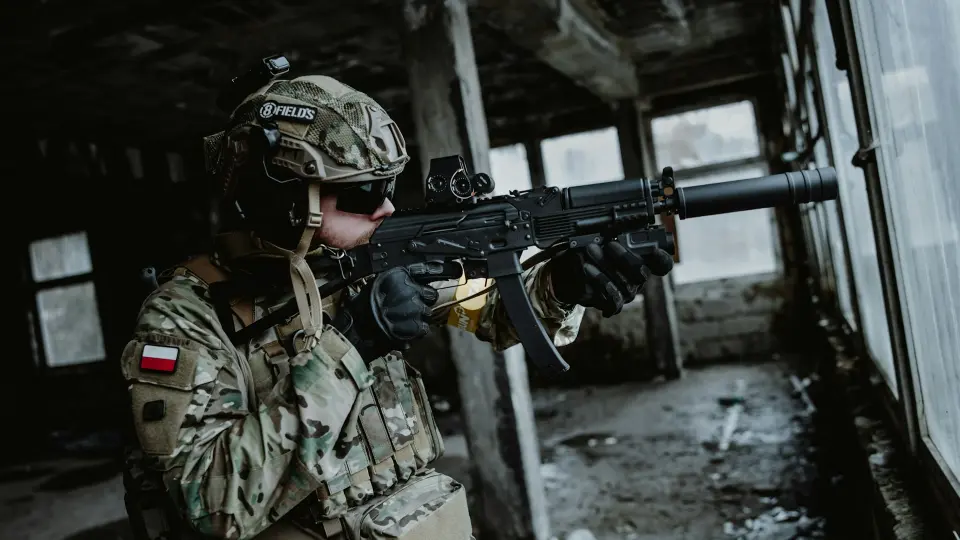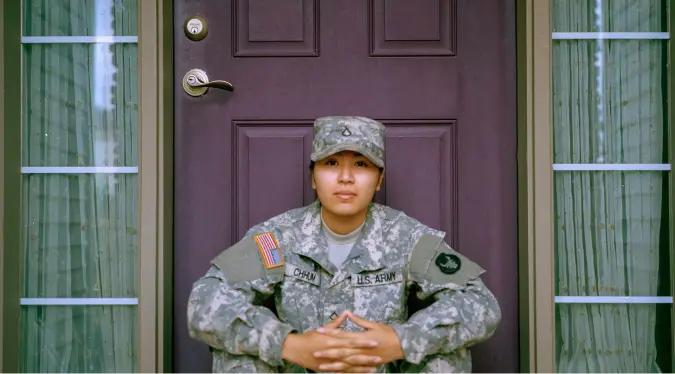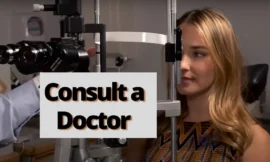Key Information:
LASIK surgery for military personnel aids in improving vision quality to a greater extent by reducing eyewear usage in a short time. For this purpose, about 26 LASIK facility-providing centers have been established under the name Warfighter Refractive Eye Surgery Program under the US Defense Department.
Military personnel who have moderate to higher degrees of myopia and hyperopia will be treated. Not every eye patient of the military, including marine officers and naval sailors, air force, and army in the US, is eligible for the LASIK.
Every military branch has different visual acuity requirements that specify the need for LASIK eye surgery for optimal performance during a serving period. Some LASIK institutes offer some percent off for laser surgery to those serving armed forces members.
On This Page
- Key Information:
- Can I Get LASIK While Serving in the Military?
- Why Using Eyewear During Military Service is Challenging and Unsafe?
- Why Do Ophthalmologists opt for LASIK for Military Personnel?
- LASIK Surgery for Different Branches in the Military
- Vision Standard to be in the Military
- Risks and Considerations
- Success Rates
- Training and Education for Military Personnel
- Recovery From Surgery:
- Alternatives to LASIK for Military Personnel
- References
It is a risk factor if a person with a vision disorder is serving in the armed forces. Deploying them in intense situations would increase the risks. They need contact lenses or glasses to perform military tasks, but it’s not a good solution. Laser eye surgeries are now a common alternative to contact lenses and glasses.
In the military, every branch rank can get LASIK surgery performed by a certified ophthalmologist for different eye conditions, including myopia, hyperopia, and astigmatism.
LASIK eye surgery would give the army person clear eye eyesight so he can operate an armored vehicle without wearing the distraction of glasses or contact lenses during intense situations.
Can I Get LASIK While Serving in the Military?

Yes, you and I can have LASIK surgery for the vision disorder while serving in the US military, whether it should be nearsightedness, farsightedness, or astigmatism at any age of life but before 65.
Eye-centric responsibilities in the military require 20/20 vision. If you have blurred vision, then you can get it via LASIK surgery and fulfill your dream of being a part of the military. Whereas, some military jobs can be done if you have vision 20/40.
The armed forces have medical centers where they provide care to the corps to regain their health (including visual health). The need for refractive surgery will be discussed by commanding officers as the patient should have to get leave for some days after his surgery. Permission should be required no matter if you are in any branch of the military i.e. army, navy, or air force.
Why Using Eyewear During Military Service is Challenging and Unsafe?

Using eyewear such as glasses or contact during routine activities is annoying, and it can pose a higher risk to the life of the personnel during military jobs. You can’t imagine wearing glasses in intense situations can give you the fear of death if it can be broken or lost.
- First, the responsibility of carrying glasses on the nose can disturb your vision ability in case of falling during quick actions and results in blurred vision.
- If a military person uses contact lenses, the vision can be worse in a dusty environment, and the lens can cause an eye infection.
If you are working with your teammates on a secret mission, then a little mistake that is caused by the vision condition can put you and your teammates at higher risk.
In short, military personnel can’t perform well at war while wearing glasses or contact lenses.
Why Do Ophthalmologists opt for LASIK for Military Personnel?
Traditional vision correction such as glasses and contact lenses can’t be as efficient as laser-assisted refractive surgery. So, the ophthalmologist opted for LASIK surgery to treat military personnel who had nearsightedness, farsightedness, or astigmatism, aiming to provide them with clear vision. The process of recovery from vision surgery is faster than other surgeries.
Some of the benefits that would be the reason to choose LASIK for military personnel are;
- Get Rid of Glasses or Contact Lenses: The need for glasses or contact lenses is reduced as optical researchers introduced laser surgery. When a military person gets LASIK surgery for their eye conditions there is a 90% chance that he will get 20/20 vision.
- See the Surrounding: LASIK can improve the vision, and hence if you are seized during the conflict then the opponent troops won’t be able to remove eyewear which can reduce your ability to tackle the situation. You can see the happenings with your naked eyes and can make decisions as per the condition.
- Military Promotion: There are higher chances of promotion to the upper level as medical fitness with 20/20 visual acuity will get you higher points to fit that military post.
- Professional Safety: With LASIK your vision gets sharper, and you will ultimately get safer if you are deployed at an eye-centric place. Your work efficiency will increase with improved vision.
- LASIK Procedure Ease: LASIK didn’t take long to correct refractive errors as the procedure is laser-guided. It doesn’t hurt as the numbing drops are given before the surgery.
- Avoid Eye Infections: You can bypass the infection caused by contact lenses and enjoy the infection-free nature with clear eyesight.
- Fast Recovery: The recovery of the corneal flap created during LASIK surgery will take about 7 days to see the objects. We observed that most military patients get improved eyesight just 3-4 hours after the LASIK surgery.
- Care: The military personnel, whether they belong to the army, navy, or air force get intensive care from their military LASIK staff during and after the LASIK surgery. Their commanding officers give them enough time to recover from the eye condition.
LASIK Surgery for Different Branches in the Military
LASIK surgery requirements need to be fulfilled for improved eyesight. Every branch of the military can get LASIK for vision disorder. Military individuals will recover in less time and can perform their duties. They can do tough jobs after 4-6 months of laser assistance in Situ Keratomileusis.
Required Vision for Military
If you have a vision disorder, then it is not sure you can’t get recruited into the military. You can get a consultation with your ophthalmologist to get clear vision. The minimum standard vision that a person should have to be in the military is given below;
- Vision disorder with no autoimmune disease.
- Vision disorder corrected with eyeglasses to get 20/40.
- Nearsighted people should have 20/40 vision with eyewear.
- Astigmatism with 3.0 D can be considered to serve in the military.
- The refractive value should not be higher or lower than –0.8 to +0.8 D.
If you have poor vision and do not meet the requirements listed above, you cannot be recruited to serve in any military branch. Vision disorder hinders the practicality, hygiene, and readiness of a soldier or military officer.
In case a patient has an unhealthy cornea and can’t see without contact lenses, then he would be considered to get retired or discharged from the military service so as not to stack his life at risk.
Vision Standard to be in the Military

Here is the vision standard to serve in the military;
U.S. Army
The visual acuity should be 20/20 to serve as a pilot and special duty person. You should have a 20/20 vision if you want to serve in the army front-end warrior like an infantryman.
You would have to wait for 1 year period to get vision stability If you got refractive eye surgery before recruitment. If you have a stable vision, then you can be considered to qualify for the recruitment.
You can get laser vision surgery from the Warfighter Refractive Eye Surgery Program if you get refractive errors during the service.
U.S. Navy & Marine Corps
The U.S. Navy and Marine Corps have specific visual acuity standards measured in the best and worst case. In the better case, you can have visual acuity of 20/40, whereas, in the worst case, you should not have visual acuity of more than 20/70. If you have a vision disorder with the above visual acuity condition and healthy cornea then it is treated up to 20/25.
U.S. Coast Guard
The Coast Guard selection process should require everyone to pass a medical exam and meet a standard vision requirement, whether they have corrected or uncorrected vision.
Read the vision criteria for serving in the Coast Guard:
- Individuals should distinguish the colors.
- Visual acuity should be 20/400 with uncorrected vision.
- Myopia that can be corrected up to 20/40.
- The refractive error should be between + 8.00 D and – 8.0 D.
Vision correction may involve LASIK or other optical procedures that help correct refractive errors and maintain corneal health for proper light direction onto the retina. LASIK eye surgery combined with a healthy lifestyle is the best option for improving and meeting military vision criteria.
For military personnel, this LASIK refractive procedure is free. Some private laser centers offer discounts on LASIK to active military personnel.
U.S. Air Force
We notice that the Air Force selection committee is considering recruiting individuals who have a 20/20 vision and are compliant with aviation standards. For flight operations, your vision should be 20/20 or better.
Whatever your eye condition (nearsightedness, farsightedness, or astigmatism) is, after correction, your vision should be 20/20 for the pilot and jet flying officer.
You will be directed to a medical facility for surgery to restore your vision if you develop a refractive error while receiving service.
Risks and Considerations
Clear vision is essential for military jobs because they are physically demanding and primarily focused on the eyes. When taking optical medication, there are a few minor adverse effects, which outweigh the benefits.
Like other surgeries, LASIK involves certain risks that need to be considered before undergoing the procedure. Among the risks are
- Dry or stale eyes.
- corneal dislodging.
- blurred vision during night operations.
- Infection if deployed in a dusty environment.
Success Rates
Regardless of the condition—myopia, hyperopia, or astigmatism—the success rate for LASIK is over 90%. The patient’s condition and the doctors’ procedure have an impact on the success rate.
Senior eye surgeons with trained medical personnel perform all surgeries in the US military. As a result, the likelihood of recovering from the eye condition is higher.
Training and Education for Military Personnel
Training and education by the paramedical military personnel on eye health will improve the success rate of LASIK surgery. Senior officers should talk about possible risks, advantages, and signs before, during, and following surgery in the training session for eye patients. The eye patient will feel more confident during the process if the procedure is discussed.
These educational sessions on eye conditions, vision care, treatment options (such as the advantages of LASIK surgery), and other surgical and non-surgical vision correction techniques are necessary for military medical personnel. Describe how each person’s ability to see is crucial to their nation’s readiness.
Does Insurance Cover LASIK for People in the Military?
We have discussed in detail whether LASIK is covered by insurance for civilians. It is not unusual for military personnel to obtain insurance.
Most health insurance plans do not pay for LASIK procedures, but some organizations, like LasikPlus, give active military personnel a discount on vision correction.
When Is the Best Time to Get LASIK if I’m Already in the Military?
The best time for LASIK depends on the severity of the eye condition. Remember that there will be a documentary procedure, including medical and administrative requirements, that you must follow.
Each military branch has its criteria for providing medical services to its members. The service criteria for LASIK under WRESP are that your service period should be longer than one year.
Take this online LASIK test to find out how likely you are to get LASIK surgery.
Recovery From Surgery:
Recovery will be speedy if you follow your surgeon’s instructions strictly. We have observed that some patients get dry eyes after the surgery and that symptoms will vanish with the optical drops within 1 week.
You will get clear vision that can be 20/20 or 20/40 just after the surgery as the cornea heals. Whereas full recovery will take 3-6 months and after this, you can do your military job.
Alternatives to LASIK for Military Personnel
The LASIK alternative for military personnel is
- PRK,
- ICLS,
- SMILE
Some military eye patients have thin corneas, whereas others have thick and healthy corneas; the surgery will be recommended based on medical and eye health.
References
- Tanzer, D. J., et,al. (2013). Laser in situ keratomileusis in United States Naval aviators. Journal of Cataract & Refractive Surgery/Journal of Cataract and Refractive Surgery, 39(7), 1047–1058.
- Godiwalla, R. Y., Magone, M. T., Kaupp, S. E., Jung, H., & Cason, J. B. (2019). Long-term outcomes of refractive surgery performed during the military. Military Medicine, 184(11–12), e808–e812.
- Hertle, R. W. (2021). Enough Sight to Fight? The history of military visual system requirements. Survey of Ophthalmology, 66(3), 531–542.
- Military laser eye Surgery: Enhancing vision readiness. (n.d.). The Official Army Benefits Website.



![Explain Contoura LASIK: A Topography Guided Surgery [2024]](https://healthstreamings.com/wp-content/uploads/2024/01/Contoura-LASIK-2-1-270x162.webp)
